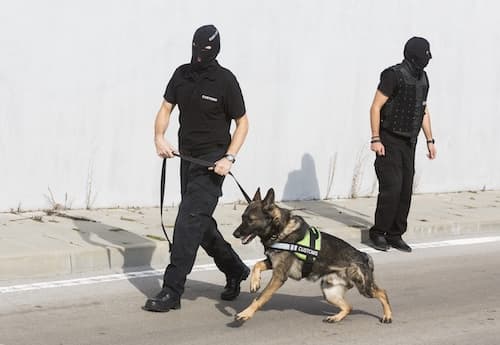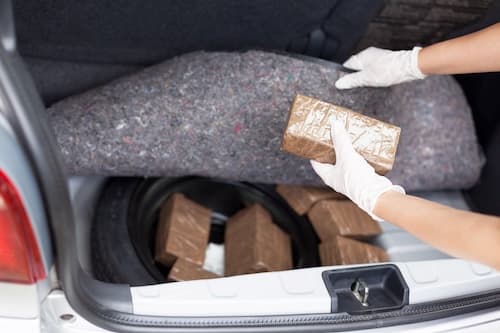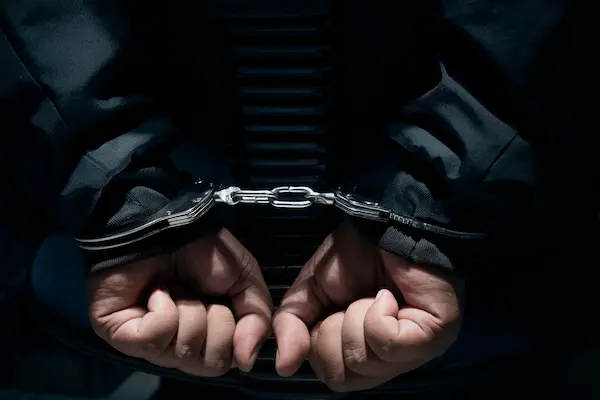What You Need to Know About Federal Penalties for Smuggling Drugs Across State Lines
When facing charges for smuggling drugs across state lines, the consequences can be life-altering. Smuggling drugs is a serious federal offense that can lead to steep penalties, including long prison sentences, hefty fines, and a permanent criminal record. If you are facing such charges, having the right legal representation is critical. At Cowboy Law Group, we understand the complexities of drug smuggling cases and are dedicated to providing aggressive and experienced defense strategies. A smuggling defense lawyer from our team can help you navigate these turbulent waters, protect your rights, and fight for the best possible outcome.
In this blog, we’ll take a detailed look at the penalties for smuggling drugs across state lines, how federal law enforcement agencies pursue these crimes, and what steps you can take to defend yourself against these charges. Understanding the legal landscape and potential consequences is the first step toward protecting your future.
Understanding Smuggling Drugs Across State Lines
Smuggling drugs across state lines refers to the illegal transportation or distribution of narcotics between different states or across international borders. This illegal activity involves the movement of illicit drugs such as cocaine, heroin, methamphetamine, marijuana, fentanyl, and other controlled substances. The act of smuggling drugs is typically coordinated by organized criminal groups, including drug cartels, criminal networks, and traffickers, who are skilled in evading law enforcement detection.
The criminal networks responsible for smuggling drugs across state lines are often part of larger global operations that traffic illegal drugs from other countries, such as Mexico, South America, or even Asia. These traffickers rely on a variety of methods to transport narcotics, ranging from concealing drugs in cargo shipments, to using underground tunnels, or even employing firearms and other tools for violence to protect their operations.
The Role of Federal Authorities in Pursuing Smuggling Cases
Federal law enforcement agencies are responsible for enforcing the laws related to drug smuggling. The Drug Enforcement Administration (DEA) is the primary agency dedicated to investigating and prosecuting drug-related crimes, including smuggling drugs across state lines. The DEA, alongside other agencies such as the FBI, Customs and Border Protection (CBP), and Homeland Security, works to dismantle criminal syndicates and disrupt the flow of illegal drugs into the country.
The smuggling of drugs is not confined to just one location; it spans across the entire nation, with major trafficking routes often running through states like Texas, California, and Florida, which are close to international borders. These regions are particularly vulnerable to the illegal drug trade, and the federal government dedicates significant resources to preventing the flow of narcotics into the U.S. from countries like Mexico, where drug cartels often orchestrate smuggling operations.
Penalties for Smuggling Drugs Across State Lines
If you are caught smuggling drugs across state lines, the penalties can be severe. Under federal law, drug smuggling is considered a felony offense, and the consequences can range from lengthy prison sentences to significant financial penalties. The specific penalties for drug smuggling vary depending on several factors, including the type and quantity of drugs involved, the methods used for smuggling, and whether violence or firearms were involved in the trafficking operation.
Prison Sentences
One of the most significant penalties for smuggling drugs is imprisonment. Federal law imposes stringent sentences on individuals convicted of smuggling narcotics across state lines. For example:
- Cocaine and Heroin: These two substances are among the most heavily trafficked drugs, and those convicted of smuggling large quantities face mandatory minimum sentences of 5 to 10 years in federal prison, with the possibility of life imprisonment for especially large quantities.
- Methamphetamine: Because methamphetamine is considered one of the most dangerous drugs, individuals caught smuggling it across state lines can face severe penalties, including 10 years to life in prison, depending on the quantity.
- Fentanyl: The rise in fentanyl-related overdoses and deaths has led to even harsher penalties for those caught smuggling this synthetic opioid. If fentanyl is involved in the case, the penalties are significantly more severe, with sentences reaching up to life imprisonment, particularly when it results in death or serious injury.
- Marijuana: Although marijuana is legal in many states, it remains illegal under federal law. Therefore, smuggling marijuana across state lines is still subject to criminal penalties. Individuals caught with large amounts of cannabis can face prison sentences of several years.
Financial Penalties and Asset Seizures
In addition to imprisonment, individuals convicted of smuggling drugs across state lines may face significant financial penalties. Fines for drug smuggling can reach millions of dollars, depending on the scale of the operation. Furthermore, federal authorities often seize assets related to the drug trade, including vehicles, cash, and property used in the trafficking of illicit drugs.
The government’s ability to seize assets is an essential tool in the fight against smuggling drugs, as it helps disrupt the financial backbone of criminal enterprises. The money laundering activities tied to the drug trade further complicate these cases, as traffickers often attempt to conceal or “clean” their illicit earnings through a network of fraudulent transactions.
Impact on Future Life and Social Consequences
A conviction for smuggling drugs across state lines carries long-lasting consequences. Beyond prison time and fines, those convicted face lifelong reputational damage and difficulty finding employment due to their criminal record. In some cases, convicted individuals may be barred from voting or owning firearms, which further limits their ability to reintegrate into society.
Furthermore, the emotional toll on families and the stigma surrounding criminal convictions can affect personal relationships and future prospects. For many, a drug smuggling conviction means a future significantly altered by the weight of past mistakes.
How the Federal Government Investigates Smuggling Activities
Federal authorities utilize a multi-layered approach to detect, investigate, and dismantle drug smuggling operations across state lines. Because smuggling drugs is a serious federal offense often linked to organized crime groups, drug cartels, and international criminal networks, the government invests significant resources into intelligence gathering, surveillance, and coordination among multiple agencies. Investigations typically begin with detailed intelligence analysis, where law enforcement agencies, including the Drug Enforcement Administration (DEA), the Federal Bureau of Investigation (FBI), and Homeland Security Investigations (HSI), collect information from confidential sources, informants, and tip-offs from local police officers and border authorities. These initial insights help authorities identify high-risk smugglers, trafficking routes, and the criminal networks behind the movement of narcotics like cocaine, heroin, methamphetamine, fentanyl, and marijuana.
Once potential trafficking networks are identified, federal authorities often deploy undercover agents and utilize covert operations to infiltrate these criminal organizations. Wiretaps, monitored communications, and surveillance of drug dealers, traffickers, and other individuals involved in the illicit drug trade are common strategies. These tactics are designed not only to intercept illegal drugs in transit but also to gather actionable evidence that can lead to the prosecution of the smugglers, criminal networks, and associated parties, including those engaged in money laundering and other illicit activities.
Surveillance and Technology
Advances in surveillance technology have transformed the way federal authorities combat drug trafficking. Modern investigations leverage drones, GPS tracking, cell phone forensics, and data analytics to follow the movement of narcotics from entry points at the border to distribution networks across multiple states. These tools enable federal agents to map trafficking routes, identify hubs of criminal activity, and anticipate the methods drug smugglers use to evade detection. For example, federal authorities can monitor vehicles, cargo shipments, and even digital transactions to uncover patterns consistent with organized crime operations and international smuggling efforts.
The integration of technology with traditional investigative tactics, such as undercover operations and human intelligence, allows law enforcement agencies to build comprehensive cases against traffickers and disrupt the illicit drug trade. Tracking tools and analytics also help pinpoint seizures and the movement of funds connected to criminal networks, thereby targeting not only the smuggling of illegal drugs but also the money laundering and financial infrastructure that supports these operations.
Border Control and Seizures
A significant proportion of drug smuggling occurs at the nation’s borders, particularly along the U.S.-Mexico border and in high-traffic regions like Texas. Customs and Border Protection (CBP), working in coordination with the DEA and other federal agencies, plays a critical role in monitoring these entry points. Federal officers inspect vehicles, commercial shipments, and travelers to identify and intercept narcotics before they can reach domestic markets or be transported to other states. These drug seizures are a key part of the federal strategy to disrupt the supply chain of illicit substances.
Smugglers continually adapt to law enforcement efforts, employing hidden compartments, underground tunnels, or human mules who carry drugs internally or on their bodies. Some criminal networks use advanced concealment techniques in shipping containers, commercial trucks, or private aircraft, making detection increasingly challenging. To counter these sophisticated methods, federal authorities constantly update training, adopt new technology, and share intelligence across multiple jurisdictions. This coordinated effort ensures that federal law enforcement remains capable of identifying traffickers, intercepting illicit drugs, and prosecuting those involved in smuggling networks that span international borders and domestic states.
By combining intelligence gathering, advanced technology, human surveillance, and border control, the federal government maintains a comprehensive approach to disrupting smuggling operations. These efforts target not only the drugs themselves but also the financial and organizational structures that support trafficking, making it harder for criminals, gangs, and cartels to profit from illegal activities while protecting victims of the illicit drug trade and reducing the risk of violence associated with these operations.
The Role of a Smuggling Defense Lawyer
If you are facing charges related to smuggling drugs across state lines, the stakes are incredibly high. Convictions for drug smuggling carry severe consequences, including lengthy prison sentences, significant fines, and a permanent criminal record that can affect every aspect of your life. Given the seriousness of these charges, it is absolutely essential to seek legal counsel from an experienced smuggling defense lawyer who can guide you through the complex legal process and provide aggressive, effective representation. At Cowboy Law Group, we specialize in defending individuals accused of drug trafficking and smuggling and have a proven track record of helping clients navigate even the most challenging cases.
A skilled defense attorney can be the key to protecting your rights, defending your freedom, and ensuring the best possible outcome in your case. With years of experience in criminal defense, we understand the nuances of federal drug laws and how the federal government builds its cases against alleged drug smugglers. Whether you are facing charges for trafficking cocaine, heroin, methamphetamine, marijuana, or any other illicit substance, we are committed to providing a tailored defense strategy that aligns with your unique circumstances.
Defending Against Smuggling Charges
When you are accused of smuggling drugs across state lines, the prosecution’s case may seem overwhelming, but a smuggling defense lawyer will work tirelessly to protect your rights and explore all avenues for a defense. Several viable defense strategies could help reduce charges, secure a more favorable outcome, or even lead to the dismissal of the case. Below are some common defenses available to individuals charged with drug smuggling:
Lack of Knowledge: One of the Most Common Defenses in Drug Smuggling Cases
One of the most effective defenses in smuggling cases is a claim of lack of knowledge. In certain situations, the accused may not have been aware that they were involved in transporting illicit drugs. For example, someone might unknowingly transport a package or vehicle containing narcotics because they were deceived by someone else or were simply not told what the cargo contained. This defense strategy focuses on the idea that the accused did not have the necessary knowledge or intent to commit the crime of drug trafficking.
Under federal law, intent plays a crucial role in establishing guilt in drug trafficking cases. If the prosecution cannot prove that the accused knowingly and willfully participated in the smuggling operation, the defense can argue that there was no criminal intent. A smuggling defense lawyer will thoroughly investigate the case and examine the circumstances under which you were allegedly involved in the smuggling operation to determine if lack of knowledge could be a valid defense.
Mistaken Identity: Challenging the Prosecution’s Case
In some cases, a mistaken identity defense can be used to challenge the prosecution’s evidence. If the defendant was wrongly identified as a drug smuggler, the defense can present evidence to show that the accused was at the wrong place at the wrong time or was misidentified by law enforcement officers or witnesses. Mistaken identity is a more common occurrence than many realize, especially when it comes to complex smuggling operations where multiple individuals may be involved in transporting drugs.
If you were in the wrong place or caught up in a situation involving drugs, but you weren’t actually involved in the trafficking or smuggling operation, a skilled defense attorney will help establish your innocence by challenging the accuracy of the evidence against you. The defense might scrutinize surveillance footage, GPS tracking data, witness statements, or other key evidence to show that the person accused of smuggling drugs was not, in fact, involved in the illegal activity.
Illegal Search and Seizure: Challenging the Evidence Against You
Another potential defense in smuggling drugs cases is an illegal search and seizure claim. The Fourth Amendment of the U.S. Constitution protects citizens from unreasonable searches and seizures by law enforcement. If law enforcement officers violated your constitutional rights during the investigation, arrest, or search, any evidence gathered as a result of this unlawful action may be deemed inadmissible in court. This is known as the exclusionary rule, which can lead to the dismissal of the case if key evidence is thrown out.
For example, if law enforcement officers conducted a search of your vehicle or property without a valid warrant, probable cause, or the appropriate legal authority, your smuggling defense lawyer may be able to file a motion to suppress the evidence. If successful, this motion could weaken the prosecution’s case and even lead to the dismissal of charges or a favorable plea bargain. Experienced criminal defense attorneys are well-versed in identifying improper searches and seizing opportunities to challenge illegal evidence.
Entrapment: Was the Defendant Coerced Into Smuggling?
In certain cases, a defense based on entrapment may be applicable. This occurs when law enforcement agents or undercover officers induce or coerce a defendant to commit a crime they would not otherwise have committed. If the defendant can show that they were enticed or pressured into smuggling drugs by law enforcement officers, the entrapment defense may be used to argue that the defendant should not be held criminally liable.
Entrapment is a complex defense that requires thorough legal analysis. A smuggling defense lawyer will carefully examine the facts of your case to determine whether law enforcement overstepped their boundaries and improperly influenced your actions.
The Role of Expert Witnesses and Evidence
In many drug smuggling cases, expert testimony and specialized evidence are critical in challenging the prosecution’s claims. A smuggling defense lawyer may hire experts in fields such as drug chemistry, law enforcement tactics, or border control procedures to offer testimony that supports the defendant’s case. These expert witnesses can testify to various aspects of the case, including the method of drug concealment, the reliability of evidence, and the plausibility of the defendant’s version of events.
Furthermore, your defense attorney will examine all the evidence presented by the prosecution, including wiretaps, surveillance footage, and physical evidence like drugs or drug paraphernalia. If the evidence is unreliable, mishandled, or insufficient, your smuggling defense lawyer will work to undermine the case against you and advocate for a reduced sentence, charge dismissal, or favorable plea agreement.
Why Choose Cowboy Law Group for Your Smuggling Defense?
At Cowboy Law Group, we understand that being charged with drug smuggling is a daunting experience that can have profound consequences on your future. Our legal team is committed to providing personalized and aggressive defense strategies to those accused of trafficking illicit drugs across state lines. With extensive experience in handling federal drug crimes, we know how to challenge the prosecution’s case and provide the best possible defense for our clients.
Our approach involves a detailed review of all evidence, a comprehensive analysis of your situation, and a determination of the most effective defense strategy. Whether you face charges for smuggling cocaine, heroin, methamphetamine, marijuana, or other illegal substances, our attorneys will fight for your rights and work relentlessly to achieve the best possible result. We are here to ensure that you receive the best representation, whether that means negotiating for a reduced sentence, advocating for a plea deal, or fighting the charges in court.
If you’re facing charges related to drug smuggling or trafficking, don’t wait—contact Cowboy Law Group today to schedule a consultation with an experienced smuggling defense lawyer. We are committed to defending your future.
Frequently Asked Questions About the Penalties for Smuggling Drugs Across State Lines
What are the penalties for smuggling drugs across state lines in the U.S.?
Smuggling drugs across state lines is a serious federal offense. The penalties for drug smuggling depend on factors like the type and quantity of drugs involved. Individuals convicted of smuggling large quantities of cocaine, heroin, or methamphetamine can face mandatory minimum prison sentences ranging from 5 to 10 years, with the potential for life imprisonment in cases of significant trafficking. Those involved in smuggling fentanyl, a powerful opioid, may face even harsher penalties, especially if the drugs cause death or serious injury. Financial penalties can also apply, with fines reaching millions of dollars.
How does the federal government handle drug trafficking across state lines?
Federal authorities, including the Drug Enforcement Administration (DEA) and Homeland Security, investigate and prosecute drug trafficking cases involving smuggling drugs across state lines. These agencies use surveillance, wiretaps, and undercover operations to identify and dismantle criminal networks. Border control, especially at key entry points like Texas and Mexico, plays a significant role in intercepting drugs before they enter the U.S. Criminals involved in smuggling drugs often use creative methods to avoid detection, including hidden compartments in vehicles or tunnels. Federal law enforcement coordinates with local police to target drug traffickers and criminal organizations responsible for these illegal activities.
What type of drugs are commonly smuggled across state lines?
Various illicit drugs are smuggled across state lines in the United States, with cocaine, heroin, methamphetamine, and fentanyl being some of the most common. Despite the legalization of marijuana in several states, cannabis remains illegal under federal law, and its smuggling is still a criminal offense. Mexican drug cartels and organized crime groups are often responsible for trafficking large quantities of illegal drugs across borders. Smuggling narcotics like these is a priority for federal law enforcement agencies due to their high potential for abuse and the public safety risks they pose.
Can I face federal charges for smuggling marijuana across state lines?
Yes, smuggling marijuana across state lines can lead to federal charges, even though some states have legalized it for medical or recreational use. Under federal law, marijuana is still classified as a controlled substance, making the act of trafficking or smuggling marijuana a serious offense. Individuals caught smuggling cannabis across state lines can face penalties that include lengthy prison sentences, substantial fines, and asset seizures. It’s important to understand that state laws don’t override federal laws when it comes to drug trafficking, and the penalties under federal law can be severe.
How does drug smuggling affect my future if convicted?
A conviction for smuggling drugs across state lines can have significant long-term consequences. In addition to the possibility of a lengthy prison sentence, convicted individuals may face reputational damage, difficulty finding employment, and the loss of certain civil rights, such as voting and firearm ownership. Convictions related to illegal drugs often carry stigma that can impact personal and professional relationships. The financial penalties associated with drug smuggling, including fines and asset forfeiture, can further complicate an individual’s future prospects. It’s crucial to seek skilled legal representation if you’re facing these charges to understand your options for mitigating these consequences.
What should I do if I’m under investigation for smuggling drugs across state lines?
If you’re under investigation for smuggling drugs across state lines, it’s essential to contact a qualified criminal defense attorney immediately. Federal drug charges are complex and can carry life-changing consequences. An experienced lawyer can help you understand the charges, protect your rights, and explore possible defenses, such as challenging evidence or questioning the legality of the search and seizure that led to your arrest. With a strong defense strategy, you may be able to reduce your charges or even have them dismissed. It’s critical to act quickly to ensure your case is handled properly.
Facing Drug Smuggling Charges? Protect Your Future with Expert Legal Defense
If you or a loved one is facing charges for smuggling drugs across state lines, the consequences can be severe and life-altering. Don’t navigate this complex legal battle alone.
Contact Cowboy Law Group today to speak with an experienced smuggling defense lawyer who can help you understand your options and fight for your rights.
Get the skilled representation you need — schedule a consultation with us now! 832-326-2932










